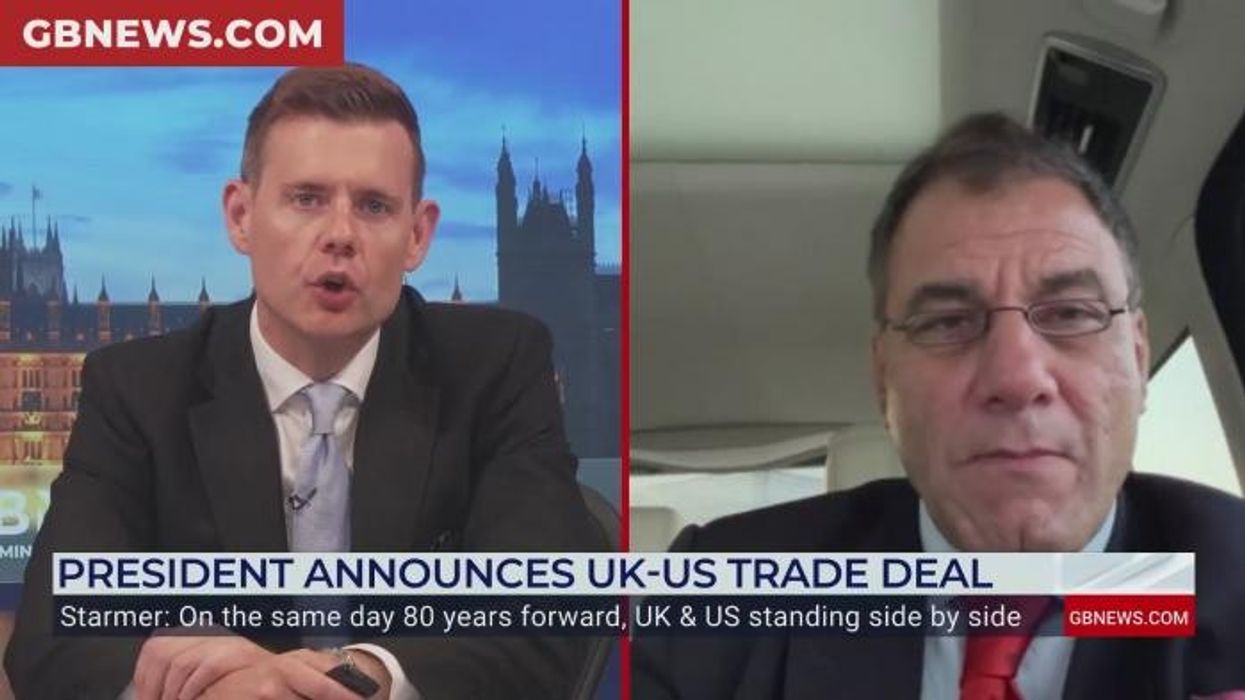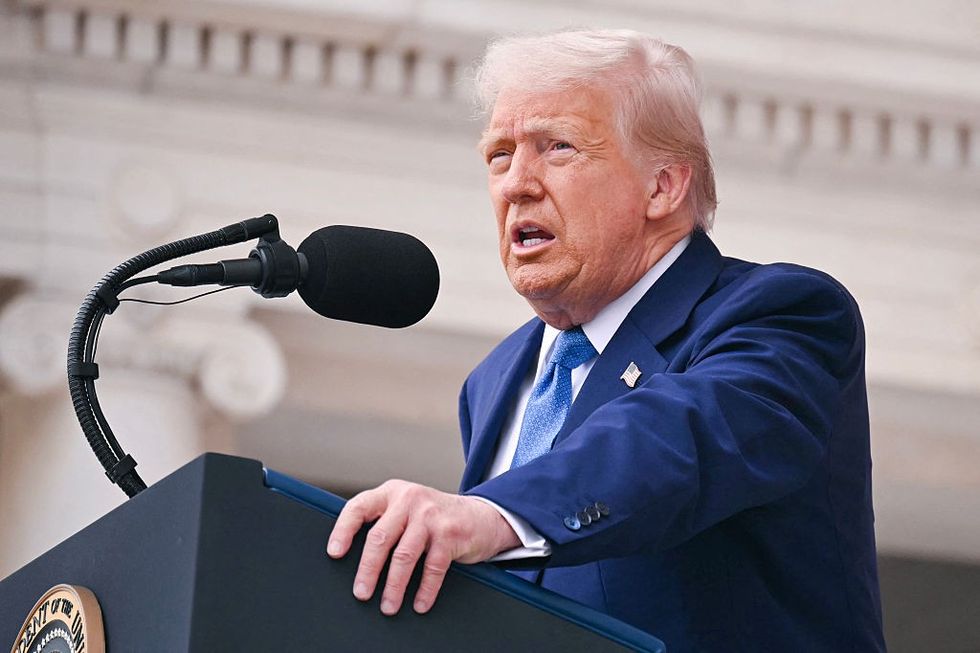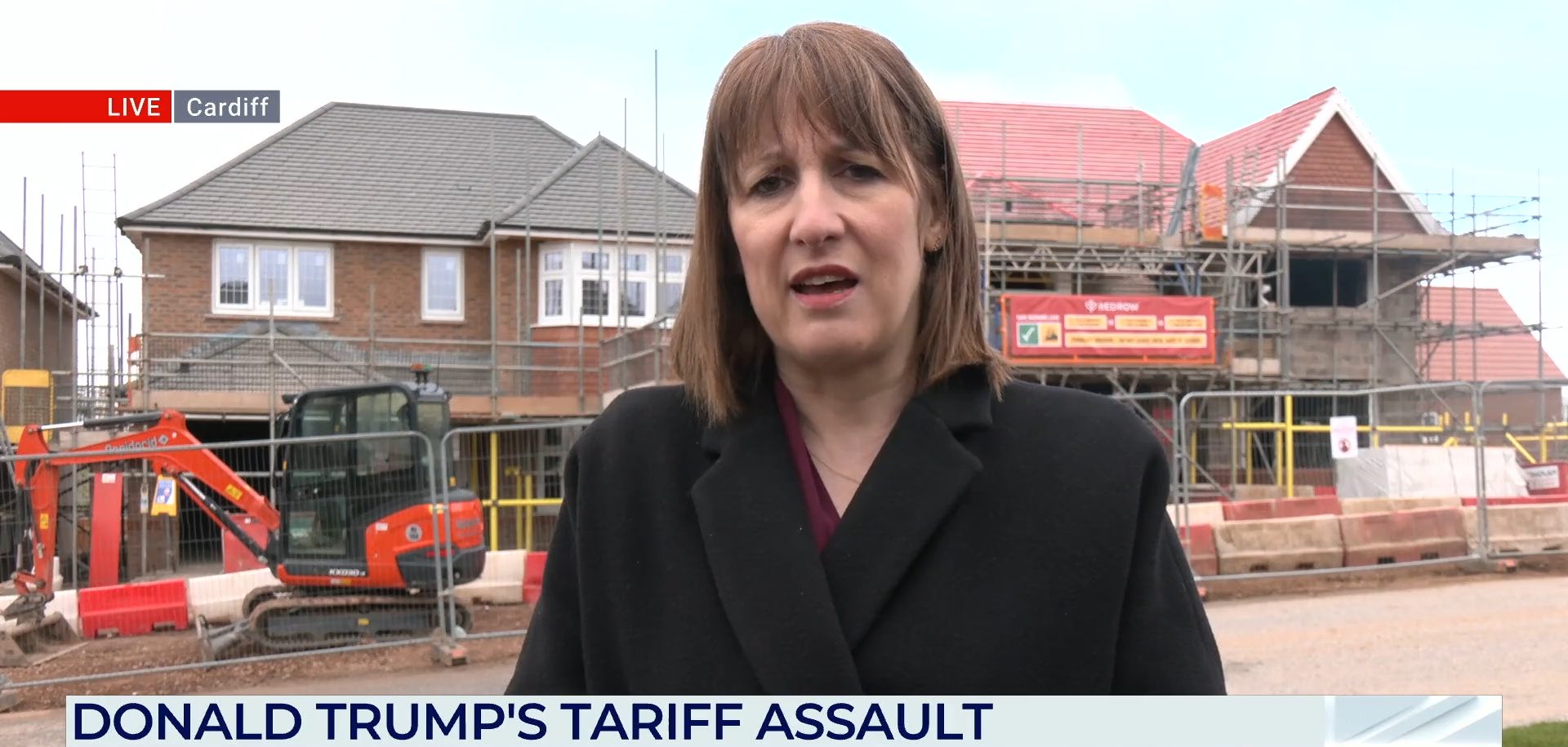Global economy in crisis as growth forecasts DOWNGRADED for 2 YEARS after Trump's trade wars hit

GBNEWS

US, Mexico and Canada economies likely to be worst affected by ongoing tariff battles
Don't Miss
Most Read
The UK's economic growth forecasts have been downgraded, cutting expectations to 1.2 per cent for 2025 and one per cent for 2026.
The Paris-based international body blamed Donald Trump's tariff wars as the primary driver behind the downgrades.
The Organisation for Economic Co-operation and Development has downgraded its March forecasts from 1.4 per cent to 1.2 per cent for this year and from 1.2 per cent to one per cent for next year.
Constraints on Whitehall spending and higher than expected inflation also contributed to the downgrade.
Álvaro Pereira, the OECD's chief economist, said: "In the past few months, we have seen a significant increase in trade barriers as well as in economic and trade policy uncertainty.
"This sharp rise in uncertainty has negatively impacted business and consumer confidence and is set to hold back trade and investment."

Global economic growth forecasts have also been slashed to 2.9 per cent for both 2025 and 2026
|GETTY
Global economic growth forecasts have also been slashed to 2.9 per cent for both 2025 and 2026, down from previous expectations of 3.1 per cent for 2025 and three per cent for 2026.
The OECD described this as "modest" growth compared to the 3.3 per cent recorded in 2024.
The organisation attributed the downgrade to rising trade barriers and uncertainty that have damaged business and consumer confidence worldwide.
"Weakened economic prospects will be felt around the world, with almost no exception," Pereira warned.
The forecasts assume that main US tariffs will remain in place over the next two years, including a 25 per cent tariff on imports of steel, aluminium and cars, and a 10 per cent blanket tariff on all goods.
"Lower growth and less trade will hit incomes and slow job growth," Pereira added.
Almost all countries have suffered downgrades in the OECD's latest growth forecasts, with the organisation responding primarily to uncertainty created by US tariffs.
"We are forecasting basically a downgrade for almost everybody," Pereira told the BBC.
The US, Mexican and Canadian economies are expected to be the worst affected by the ongoing tariff battles.
American growth forecasts were cut from 2.2 per cent to 1.6 per cent for 2025 and from 1.6 per cent to 1.5 per cent for 2026.
The OECD highlighted that the economic slowdown will be concentrated in the United States, Canada, Mexico and China.
Since Trump returned to the White House, a long list of countries have been targeted by tariffs, but his unpredictable approach to implementing the measures has created widespread uncertainty.
LATEST DEVELOPMENTS:

The US, Mexican and Canadian economies are expected to be the worst affected by the ongoing tariff battles
|Getty
The UK economy showed strong momentum in the first quarter of 2025, with GDP rising by 0.7 per cent. However, the OECD warned that this momentum is now weakening as business sentiment rapidly deteriorates.
Consumer confidence remains depressed and has declined since the second half of 2024, while retail sales volumes have been volatile. The organisation noted that businesses have been affected by heightened uncertainty linked to US tariff plans.
The OECD's report found that after the strong start to the year, economic prospects are dimming.
Inflation is likely to remain "sticky" over the next year, restricting the pace of interest rate cuts by the Bank of England despite the slowing economy.
"Inflationary pressures will initially linger, due to higher import prices and robust wage growth in 2025, but subside over 2026, as spare capacity emerges and the labour market loosens," the report stated.

Chancellor Rachel Reeves faces tough questions next month when she announces the Government's priorities for the next three years in a much-anticipated spending review
| GB NEWSChancellor Rachel Reeves faces tough questions next month when she announces the Government's priorities for the next three years in a much-anticipated spending review.
The OECD's judgment is likely to disappoint Reeves, who must contend with constrained Government spending due to rising costs of health, pensions and defence.
Government spending is limited by the rising costs while the economy remains stagnant, restricting the rise in tax receipts.
The OECD highlighted that substantial debt payments will continue to weigh on the UK's state finances and "push up public debt", despite the Chancellor's pledge to reduce the debt burden.
The Government's limited budget headroom means only small shocks could blow spending plans off course and force the Treasury to make further cuts.
Reeves responded that the Government's "landmark trade deals" with the EU, US and India would help cut costs for businesses, protect jobs and attract investment to the UK.










